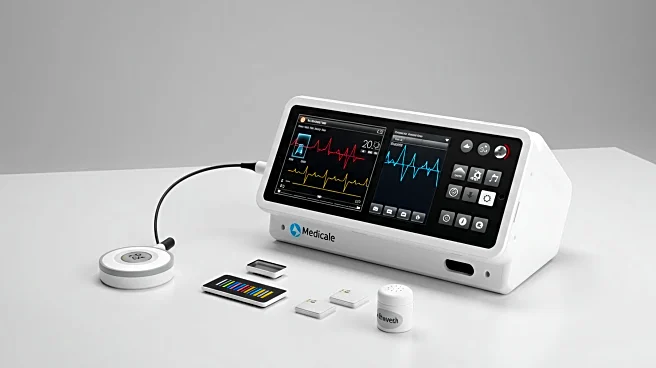What's Happening?
AdvaMed, along with 66 other groups, has called on the Centers for Medicare and Medicaid Services (CMS) to establish a streamlined pathway for the coverage of breakthrough medical devices. In a letter addressed to CMS Administrator Dr. Mehmet Oz, AdvaMed highlighted a study indicating that nearly six years typically elapse between FDA authorization and Medicare coverage for new technologies requiring novel reimbursement pathways. The organization is advocating for the adoption of a program similar to the previously withdrawn Medicare Coverage of Innovative Technology (MCIT) framework. This framework would have provided immediate national coverage for four years for any new breakthrough medical device or diagnostic approved by the FDA. AdvaMed's proposal aims to ensure timely access for Medicare patients to FDA-authorized devices and to offer a predictable roadmap for CMS to gather additional evidence necessary for permanent coverage decisions.
Why It's Important?
The push by AdvaMed and other groups for expedited Medicare coverage of breakthrough devices is significant as it addresses the delay in access to innovative medical technologies for Medicare beneficiaries. The current pathways are deemed inadequate by these groups, potentially hindering timely access to life-changing medical innovations. The MCIT framework, although contentious, was seen as a solution to provide immediate coverage, thus accelerating the availability of new medical devices to patients. The lack of legislative progress on this issue has left companies dependent on existing initiatives, which are criticized for their voluntary nature and limited scope. If successful, AdvaMed's proposal could lead to faster integration of breakthrough technologies into the healthcare system, benefiting patients who require advanced medical interventions.
What's Next?
The CMS's response to AdvaMed's proposal will be crucial in determining the future of Medicare coverage for breakthrough devices. Dr. Oz's early focus on exploring better pathways for newly approved medical devices suggests potential openness to reform. However, the CMS's previous decision to rescind the MCIT program indicates possible resistance due to concerns about the safety and effectiveness of breakthrough devices. Legislative efforts to incorporate aspects of the MCIT framework into U.S. law have been ongoing, but progress has been slow. The outcome of these efforts and CMS's actions will shape the landscape of medical device coverage and access for Medicare patients.
Beyond the Headlines
The debate over the MCIT framework and Medicare coverage for breakthrough devices highlights broader issues in healthcare policy, including the balance between innovation and safety. The medtech industry's push for expedited coverage reflects a desire to bring cutting-edge technologies to market quickly, while concerns from groups like the Association of American Medical Colleges underscore the need for thorough evaluation of device safety and effectiveness. This tension between innovation and regulation is a recurring theme in healthcare, influencing policy decisions and impacting patient access to new treatments.









